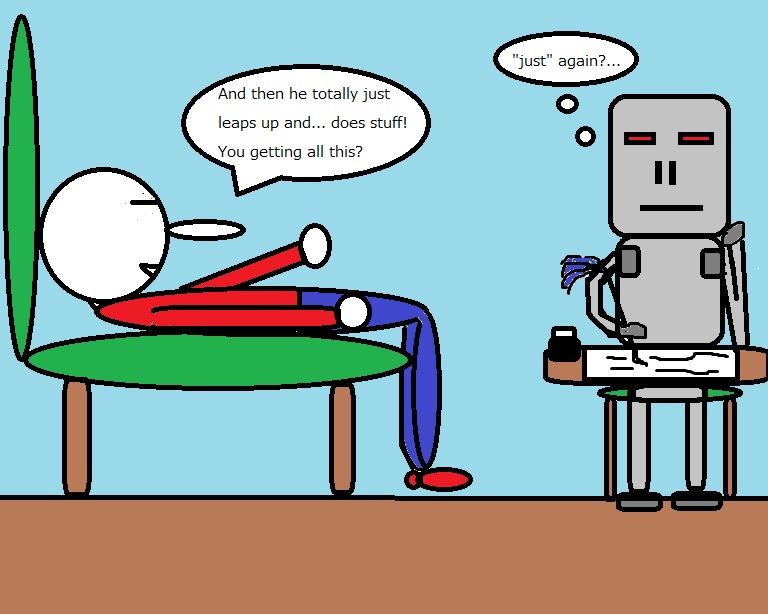Although the main tool I was planning to discuss was something for ferreting out cliches and overused expressions, the timing was right for kicking off with this article on the preferred writing tools of some famous authors. I’m sure that not many modern publishers would appreciate an envelope stuffed with hundreds of pages of loose-leaf paper smothered in barely legible fountain pen ink, so anymore analog tools are the luxury of someone who wants to retype all of their work or someone already so famous that they could scribble a novel on a roll of toilet paper and receive offers for it, but the idea of buckling down with a fountain pen or a pencil and a notepad does carry a romance that’s difficult to obtain with a computer – the same tool that does everything from calculate taxes to display videos of cats falling off of sofas.
Though analog tools have fallen out of favor, the specialization that something that cannot be reprogrammed, such as a fountain pen and an empty sheet of paper, provides is not only romantic, it makes the tool legitimately well-suited for the job it was designed for: writing. The empty piece of paper doesn’t offer the allure of escape. It gets filled with thoughts or it stays blank, whereas a computer display can easily flip from Word to the news that Ben Affleck is going to be the next Batman (I think he’ll do a good job btw). Whether the writer does actually flip to the news of Batman = Daredevil or not doesn’t matter, the fact that the option is available is what makes writing on a computer a dangerous activity because we are trained through hours of flipping back and forth to treat anything perceived through the computer in short bursts, which is why reading on one is so difficult. Even on my writing computer, which is not attached to the internet, it’s likely that some attention is lost to the flipping habit, so the ye old fountain pen approach is quite attractive. Alas, it is impractical.
Though it’s not all bad. Aside from not having to smear white out all over mistakes, the other advantage computers provide is providing tools that cover repetitive tasks or data analysis. I’ve mentioned a few before, but one that I found recently that’s interesting is Cliche Cleaner. It’s rare I buy tools, but this one might be worth it. It not only checks text for overused expressions from the public domain = cliches, it also checks text for overused expressions from the author = repetition. On a few tests, it tore through a few bits of writing like an editor worth his or her weight in gold (cliche attack). The fountain pen might have its uses, but the computer’s no slouch (argh, another one).
The other option that has been popping up more and more among writers is dictation. Not dictation software, but dictation into recording devices while on the go and using those audio files to transcribe what was said. In my case, that’s not an attractive option because my stream of thought doesn’t flow in one direction and any attempt to record me speaking to myself would leave me trying to decipher the ramblings of a crazy man at the end of my walk through the woods, but it might be worth a try for more organized folks. The powerful advantage that the approach offers is the ability to hear how words sound strung together long before the editing process begins – potentially saving hours of work later at the cost of an initial transcription investment. A boon, especially in a dialog rich work.
In a perfect world, I could dictate to a robot that writes with a fountain pen while double checking my work. Eh, who am I kidding? If I was shooting for perfect, I might as well throw in a brain-wave reading robot which would dictate to the other robot for me. Until then, I’ll have to make do with Cliche Cleaner and macros.

Good read. And I agree; dictation is a great way to “write” faster and more efficiently. And, as a matter of an example for those professional writers who use a dictation device is NYT Bestselling author Kevin Anderson. Pretty cool: http://www.olympusamericaprodictation.com/new-york-times-bestselling-author-turns-to-ds-3500/
Kelly, thank you for the comment and for the link to the article on Kevin J. Anderson. He would definitely be an authority on efficiency with the high and consistent volume of work he manages to put out. I hadn’t thought about the value of being out where there is more sensory input to feed on, but that would be another great advantage to dictation.